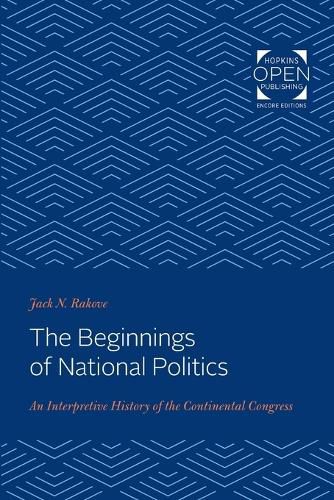Readings Newsletter
Become a Readings Member to make your shopping experience even easier.
Sign in or sign up for free!
You’re not far away from qualifying for FREE standard shipping within Australia
You’ve qualified for FREE standard shipping within Australia
The cart is loading…






Originally published in 1982. Despite a necessary preoccupation with the Revolutionary struggle, America’s Continental Congress succeeded in establishing itself as a governing body with national-and international-authority. How the Congress acquired and maintained this power and how the delegates sought to resolve the complex theoretical problems that arose in forming a federal government are the issues confronted in Jack N. Rakove’s searching reappraisal of Revolution-era politics. Avoiding the tendency to interpret the decisions of the Congress in terms of competing factions or conflicting ideologies, Rakove opts for a more pragmatic view. He reconstructs the political climate of the Revolutionary period, mapping out both the immediate problems confronting the Congress and the available alternatives as perceived by the delegates. He recreates a landscape littered with unfamiliar issues, intractable problems, unattractive choices, and partial solutions, all of which influenced congressional decisions on matters as prosaic as military logistics or as abstract as the definition of federalism.
$9.00 standard shipping within Australia
FREE standard shipping within Australia for orders over $100.00
Express & International shipping calculated at checkout
Originally published in 1982. Despite a necessary preoccupation with the Revolutionary struggle, America’s Continental Congress succeeded in establishing itself as a governing body with national-and international-authority. How the Congress acquired and maintained this power and how the delegates sought to resolve the complex theoretical problems that arose in forming a federal government are the issues confronted in Jack N. Rakove’s searching reappraisal of Revolution-era politics. Avoiding the tendency to interpret the decisions of the Congress in terms of competing factions or conflicting ideologies, Rakove opts for a more pragmatic view. He reconstructs the political climate of the Revolutionary period, mapping out both the immediate problems confronting the Congress and the available alternatives as perceived by the delegates. He recreates a landscape littered with unfamiliar issues, intractable problems, unattractive choices, and partial solutions, all of which influenced congressional decisions on matters as prosaic as military logistics or as abstract as the definition of federalism.